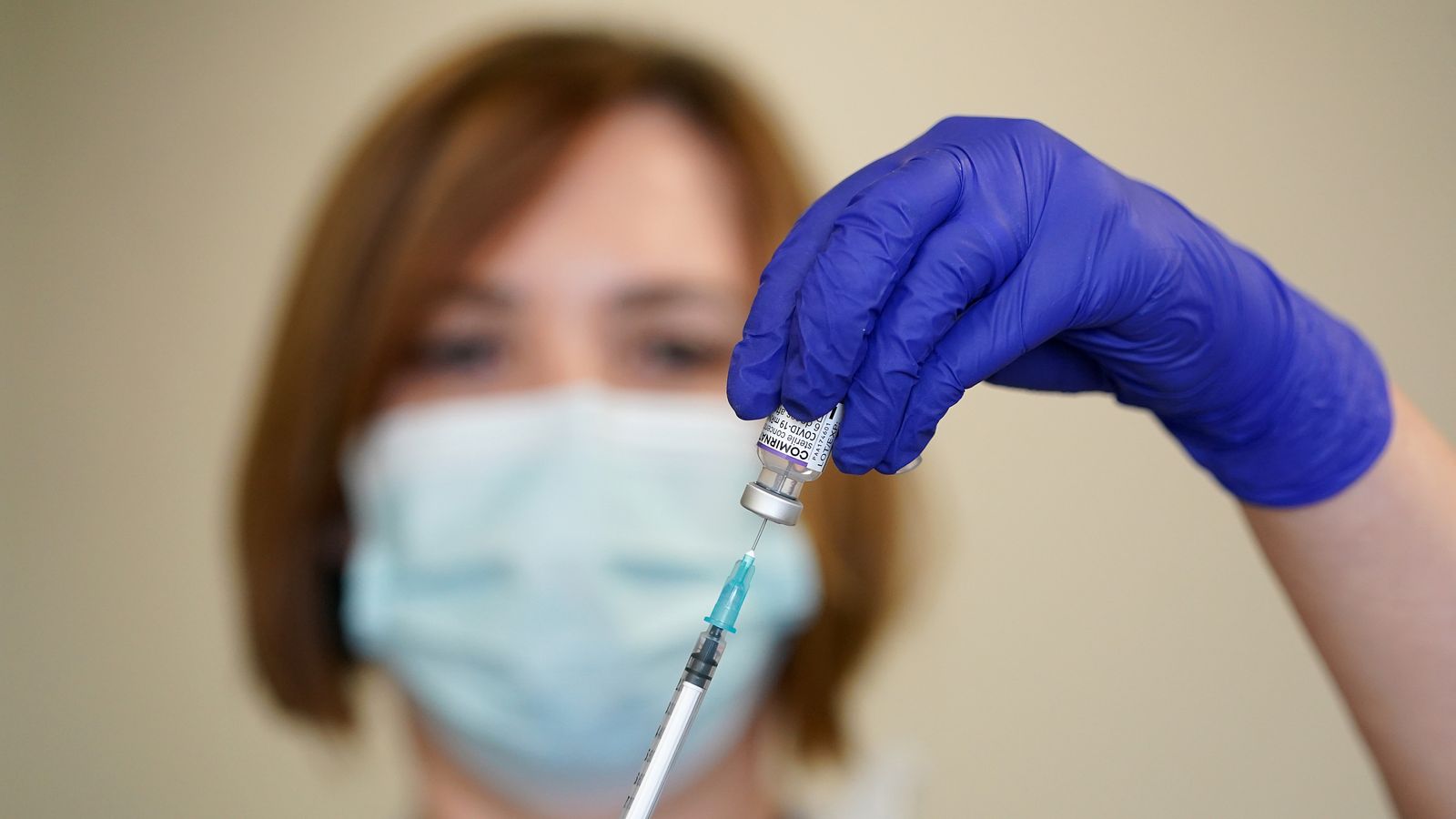People in certain vulnerable groups will now be able to get their coronavirus booster jabs sooner, the government has announced.
The UK Health Security Agency’s Green Book has been updated, allowing some individuals to get their third vaccine sooner than six months in situations where it makes practical sense.
Live COVID updates from the UK and around the world
Under the new guidance, care home residents who may have been given their second vaccine dose at different times will be able to be jabbed in the same session, as long as it has been at least five months since their last dose.
According to the Department of Health, this could also help housebound patients, who can have their flu and COVID-19 jabs at the same time.
In addition, people who are eligible for a booster and are about to undergo immunosuppressive treatment which would hinder their immune system will be able to get a third jab four months after their second injection.
“The flexibility in clinical guidance will speed up the administration of life-saving booster jabs, making it more efficient to reach the country’s most vulnerable, helping to ensure they’re protected over the coming winter months,” the Department of Health said.
COVID-19: England’s R number rises as coronavirus infections reach highest level since January
COVID-19: High case numbers in schools where not all pupils are vaccinated are ‘ideal conditions’ for new variant – government scientists
COVID-19: Pupils urged to take lateral flow test before schools return from half-term to stop coronavirus ‘in its tracks’
Health Secretary Sajid Javid said: “We are making great progress with the booster rollout and I want to thank everyone working so hard to get jabs in arms.
“This updated guidance will ensure healthcare professionals have the necessary flexibility in the booster programme, allowing more vulnerable people to be vaccinated where it makes operational sense to do so – including our loved ones in care homes.”
Please use Chrome browser for a more accessible video player
It comes after it was revealed that more than seven million booster jabs have now been administered across the UK since the programme was launched in September.
A record-breaking week has seen more than two million jabs being administered in the last seven days.
Those who are eligible for a booster but are not in the groups mentioned above will continue to be invited for their third vaccine six months after their last dose.
The advice from the Joint Committee on Vaccination and Immunisation (JCVI) on the six-month interval has not changed, although it is being kept under constant review.
Please use Chrome browser for a more accessible video player
Latest evidence from the Scientific Advisory Group for Emergencies, which has been advising ministers throughout the pandemic, shows that protection against symptomatic disease falls from 65% up to three months after a second jab to 45% six months after a second dose for Oxford/AstraZeneca vaccine.
For the Pfizer/BioNTech jab it falls from 90% to 65%.
Protection against hospitalisation drops from 95% to 75% for the Oxford/AstraZeneca vaccine and 99% to 90% for Pfizer/BioNTech.
Because of this, ministers say it is vital that those who are eligible come forward for booster jabs and top-up their protection.
Please use Chrome browser for a more accessible video player
According to early results from Pfizer, a booster jab following two initial doses restores protection to 95.6% against symptomatic infection.
And officials say that although vaccine efficacy against severe disease remains high, a small change can cause a big shift in hospital admissions.
A change from 95% to 90% against hospitalisation would see a doubling of admissions in those vaccinated, the Department of Health said.






















